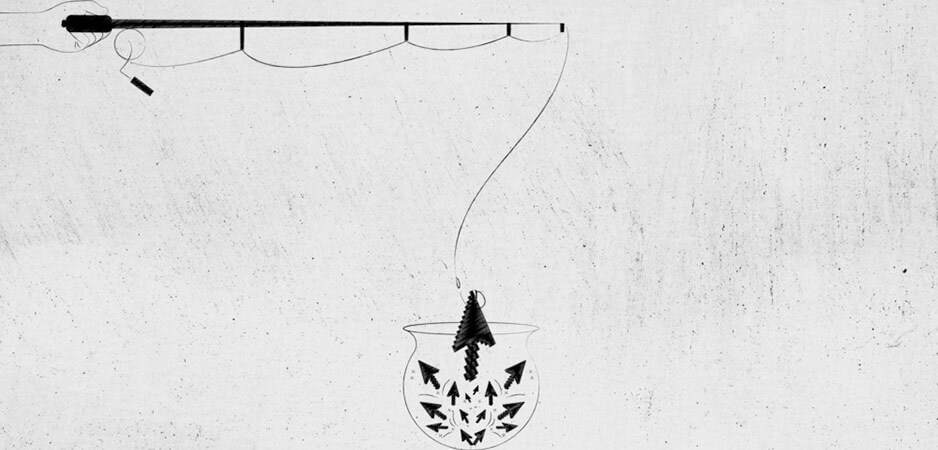The real meaning of research is to survive in the attention economy.
What would journalism be without the hordes of scientists who conduct studies of everything under the sun to reveal the hidden truths about human behavior and human health? For example, The Economist, as it reveals “new evidence” telling us that children are better at learning languages than adults, nevertheless mentions contradictory evidence. “One study found that when adults and children are exposed to the same teaching materials for a new language for several months, the adults actually do better.”
Some studies allow for astonishingly precise predictions, such as this one reported by The Guardian: “Drinking will shorten your life, according to a study that suggests every glass of wine or pint of beer over the daily recommended limit will cut half an hour from the expected lifespan of a 40-year-old.”
Here is today’s 3D definition:
Study:
A scientific investigation designed as a pretext for eye-catching newspaper articles, which in turn justify the future funding of similar studies
Contextual note
The field of scientific research produces two distinct types of results.
The first is new knowledge about the world that can change our perspective and sensational stories for the media. When observations proved Albert Einstein’s theory of curved space or when, more recently, the CERN announced proof that the Higgs boson existed, scientists’ and eventually laymen’s understanding of the world evolved and new avenues of research opened up.
The second is an intriguing distortion of human perception and understanding. When a study follows our common sense belief in the possible dangers of alcohol and puts a precise numerical figure on the effect of particular acts, we end up deforming reality, turning it into hyperreality. This kind of statistical extrapolation and specious equation (one drink = 30 minutes) has more in common with science fiction than with science. It tells a story that can’t be verified or, to use Karl Popper’s criterion, falsified.
In the case of language learning, where in one case the results proclaim that adults performed better than children with “the same teaching materials,” the study tendentiously draws conclusions about the relative capacity of children and adults to learn language apparently without taking into account the character and quality of the “teaching materials.” This despite the fact that most if not all language learning materials are notoriously unreliable for producing any kind of useful result on a consistent basis.
The real story behind the studies the public hears about lies in the concerted effort of the researchers and the media who publish their conclusions to draw attention to themselves through the impact they have on a naive public’s behavior. And it plays out by provoking the kind of morbid curiosity, doubt and fear that hellfire preachers once used to frighten people into amending their behavior. Scientists make their reputation and attract employment and grants through the publication of the studies and the buzz they can generate. The media jump on the conclusions their scientific authors produce that incite strong emotions in their public. It’s what professionals now call clickbait.
Historical note
A young French researcher, Thibault Le Texier, has just published a book — Histoire d’un mensonge (History of a Lie) — exposing one of the most famous and influential “studies” of the past century: Philip Zimbardo’s “Stanford experiment.” Thanks to this we learned, for example, that ordinary people — students who were given a role to play as prison guards in a simulation with other students as role-playing prisoners — ended up showing “genuine sadistic tendencies.” As the French publisher explains, Zimbardo’s “Stanford’s experience is closer to cinema than science: his conclusions were written in advance, his protocol was not scientific, his proceedings were constantly manipulated, and his results were interpreted in a biased manner.”
 Zimbardo, nevertheless, became a national celebrity and had a glorious career after publishing the results of his study. His conclusion influenced the thinking of generations of experts and commentators who believed he had proved that “the situation, rather than their individual personalities, caused the participants’ behavior.” Furthermore, the experiment has been widely used to illustrate various other hypotheses, such as cognitive dissonance theory and the nature of authority.
Zimbardo, nevertheless, became a national celebrity and had a glorious career after publishing the results of his study. His conclusion influenced the thinking of generations of experts and commentators who believed he had proved that “the situation, rather than their individual personalities, caused the participants’ behavior.” Furthermore, the experiment has been widely used to illustrate various other hypotheses, such as cognitive dissonance theory and the nature of authority.
In a culture of celebrity — where political, moral and intellectual reputations depend almost entirely on success in the media — even scientists have to learn to play by the rules of the attention economy. This was true, as Zimbardo’s case illustrates (in 1971), even before Silicon Valley turned it into an iron law of the economy and culture. In some sense, it sums up the world we live in: attention = success; success = money; money = power; power = respect. And when they all come together, we accept hyperreality as the norm.
That is how much of what the public takes to be science is, in reality, fake news.
*[In the age of Oscar Wilde and Mark Twain, another American wit, the journalist Ambrose Bierce, produced a series of satirical definitions of commonly used terms, throwing light on their hidden meanings in real discourse. Bierce eventually collected and published them as a book, The Devil’s Dictionary, in 1911. We have shamelessly appropriated his title in the interest of continuing his wholesome pedagogical effort to enlighten generations of readers of the news.]
The views expressed in this article are the author’s own and do not necessarily reflect Fair Observer’s editorial policy.
Photo Credit: faithie / Shutterstock.com
Support Fair Observer
We rely on your support for our independence, diversity and quality.
For more than 10 years, Fair Observer has been free, fair and independent. No billionaire owns us, no advertisers control us. We are a reader-supported nonprofit. Unlike many other publications, we keep our content free for readers regardless of where they live or whether they can afford to pay. We have no paywalls and no ads.
In the post-truth era of fake news, echo chambers and filter bubbles, we publish a plurality of perspectives from around the world. Anyone can publish with us, but everyone goes through a rigorous editorial process. So, you get fact-checked, well-reasoned content instead of noise.
We publish 2,500+ voices from 90+ countries. We also conduct education and training programs
on subjects ranging from digital media and journalism to writing and critical thinking. This
doesn’t come cheap. Servers, editors, trainers and web developers cost
money.
Please consider supporting us on a regular basis as a recurring donor or a
sustaining member.
Will you support FO’s journalism?
We rely on your support for our independence, diversity and quality.






